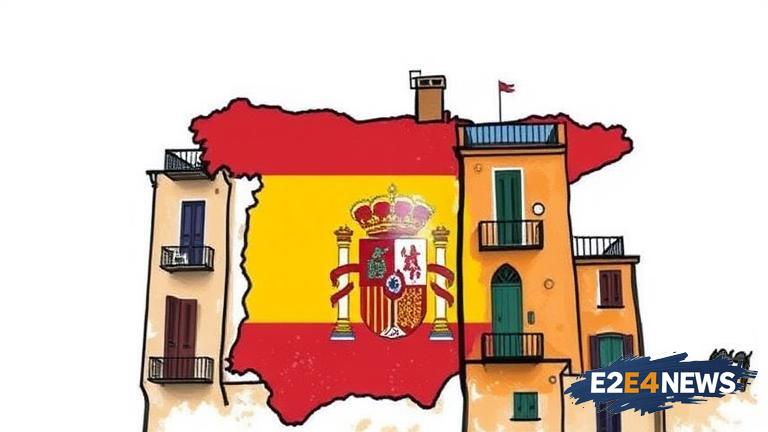In a significant move to regulate the tourism industry, Spain has launched a crackdown on unauthorized Airbnb rentals, targeting a staggering 120,000 listings deemed illegal. The Spanish government has been working to implement stricter regulations on short-term rentals, aiming to curb the proliferation of unlicensed properties. This latest development is part of a broader effort to address concerns over housing affordability, noise pollution, and overcrowding in popular tourist destinations. According to reports, the targeted listings are primarily located in major cities such as Madrid, Barcelona, and Valencia. The crackdown is expected to have a significant impact on the tourism industry, with many property owners facing fines and potential legal action. The Spanish authorities have been working closely with Airbnb to identify and remove unauthorized listings, with the company agreeing to cooperate with the government’s efforts. The move has been welcomed by local residents and community groups, who have long complained about the disruption caused by short-term rentals. However, the crackdown has also raised concerns among property owners, who argue that the regulations are overly restrictive and will harm the local economy. The Spanish government has emphasized that the goal of the crackdown is to ensure that all short-term rentals are properly licensed and regulated, and that the industry operates in a fair and transparent manner. The regulations are also intended to protect consumers, by ensuring that all rentals meet basic safety and quality standards. As the crackdown continues, it is likely that many property owners will be forced to obtain licenses and comply with the new regulations, or face the consequences. The Spanish government has also announced plans to increase funding for affordable housing initiatives, in an effort to address the underlying issues driving the demand for short-term rentals. The crackdown on Airbnb listings is part of a broader trend of governments around the world seeking to regulate the short-term rental industry. Cities such as New York, Paris, and Amsterdam have all implemented similar regulations, in an effort to balance the needs of tourists with those of local residents. The impact of the crackdown on Spain’s tourism industry remains to be seen, but it is likely that the regulations will lead to a more sustainable and responsible approach to short-term rentals. The Spanish government has emphasized that the goal of the regulations is to promote a more balanced and equitable tourism industry, one that benefits both locals and visitors. As the situation continues to evolve, it is likely that there will be further developments and updates on the crackdown. In the meantime, property owners and tourists alike will be watching closely to see how the regulations are implemented and enforced. The crackdown on Airbnb listings is a significant development in the ongoing debate over the regulation of short-term rentals, and it will be interesting to see how the situation unfolds in the coming months. The Spanish government’s efforts to regulate the industry are likely to have far-reaching consequences, both for the tourism industry and for the broader economy. As the world becomes increasingly interconnected, it is likely that we will see more governments seeking to regulate the short-term rental industry, in an effort to promote sustainability and responsibility. The crackdown on Airbnb listings in Spain is just the latest example of this trend, and it will be interesting to see how the situation develops in the coming years.
